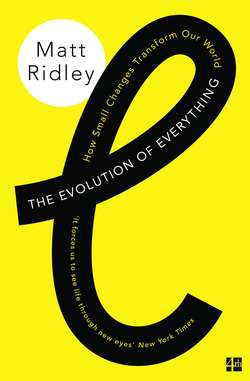Читать книгу The Evolution of Everything: How Small Changes Transform Our World - Matt Ridley, Matt Ridley - Страница 13
Thinking for ourselves
ОглавлениеIt is no accident that political and economic enlightenment came in the wake of Newton and his followers. As David Bodanis argues in his biography of Voltaire and his mistress, Passionate Minds, people would be inspired by Newton’s example to question traditions around them that had apparently been accepted since time immemorial. ‘Authority no longer had to come from what you were told by a priest or a royal official, and the whole establishment of the established church or the state behind them. It could come, dangerously, from small, portable books – and even from ideas you came to yourself.’
Gradually, by reading Lucretius and by experiment and thought, the Enlightenment embraced the idea that you could explain astronomy, biology and society without recourse to intelligent design. Nikolaus Copernicus, Galileo Galilei, Baruch Spinoza and Isaac Newton made their tentative steps away from top–down thinking and into the bottom–up world. Then, with gathering excitement, Locke and Montesquieu, Voltaire and Diderot, Hume and Smith, Franklin and Jefferson, Darwin and Wallace, would commit similar heresies against design. Natural explanations displaced supernatural ones. The emergent world emerged.
